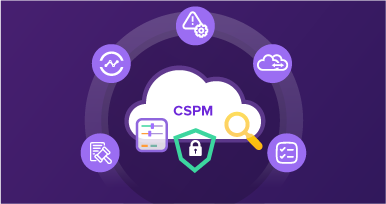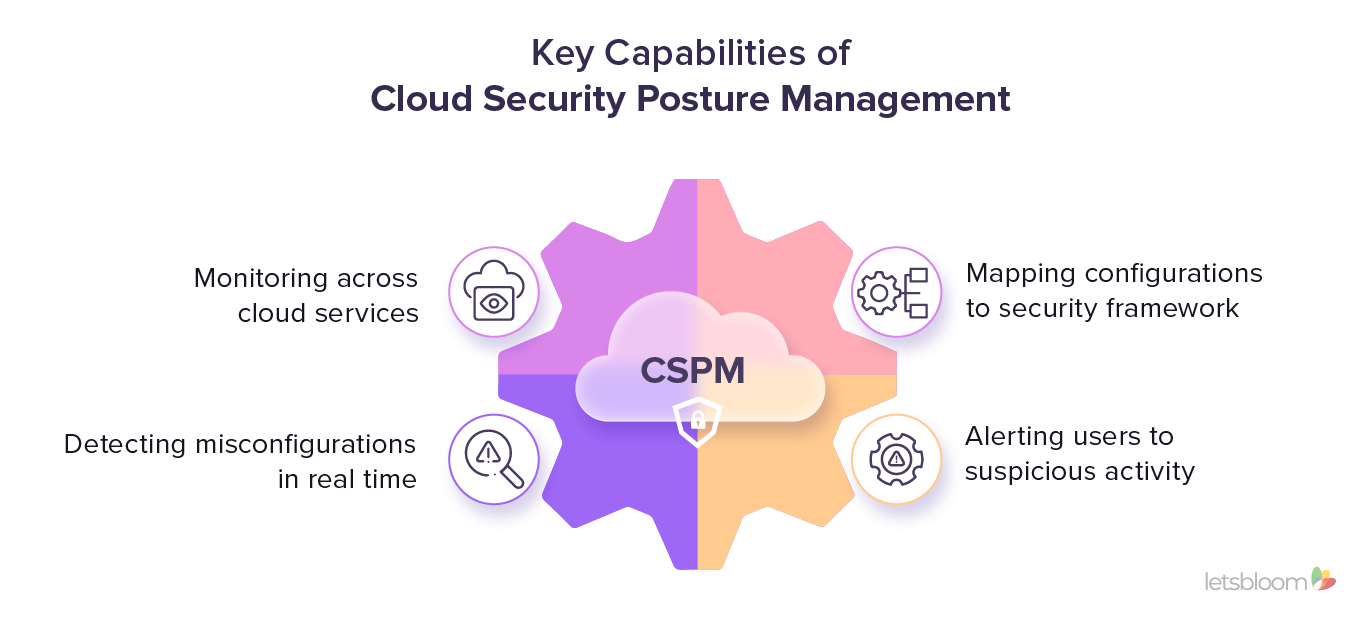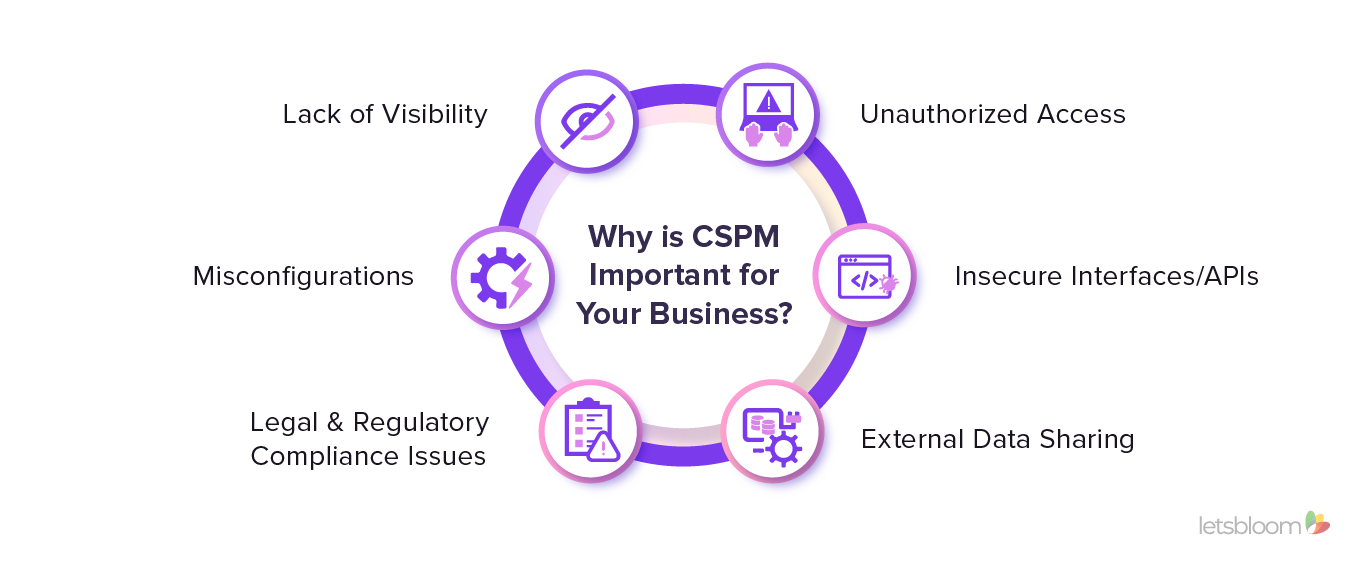What is CSPM: Cloud Security Posture Management?

Ritika Jain
Aug 23, 2024


The cloud offers significant opportunities for businesses to scale innovation, automate processes, and drive growth. However, it also exposes organizations to new risks and challenges, particularly from a security standpoint. As businesses embrace the cloud, they need to balance their current security needs with future requirements.
Organizations must secure their existing technology footprint while preparing for dynamic cloud landscape, and this is where Cloud Security Posture Management (CSPM) steps in as a vital solution.
So, what is CSPM, and why has it become a critical component for businesses? Let's dive in and explore the importance, benefits, and key capabilities of CSPM.
What is CSPM?
Cloud Security Posture Management (CSPM) refers to the practices and tools used to secure an organization's cloud environment and maintain compliance with regulatory standards. CSPM solutions help organizations manage and mitigate risks associated with their cloud infrastructure, including Infrastructure-as-a-Service (IaaS), Platform-as-a-Service (PaaS), and Software-as-a-Service (SaaS). CSPM provides comprehensive visibility, continuous security monitoring, and real-time threat detection and remediation, ensuring a robust cloud security posture.

Why is CSPM Important for Your Business?
Businesses face unique challenges when it comes to cloud security due to the dynamic and complex nature of cloud environments. A robust CSPM solution acts as a shield, defending your organization against a range of cloud risks and issues:

- Lack of Visibility: Cloud environments can be complex and distributed, making it challenging to maintain visibility into all resources and activities. CSPM provides comprehensive visibility across an organization's entire cloud footprint, ensuring no blind spots.
- Misconfigurations: Cloud infrastructure misconfiguration is a common issue that can lead to data breaches and unauthorized access. CSPM helps identify and promptly remediate misconfigurations, ensuring the security of sensitive data.
- Legal and Regulatory Compliance Issues: Organizations must comply with various industry standards and regulations, such as GDPR, PCI DSS, NYDFS, MASTRM, and HIPAA. CSPM ensures continuous compliance by identifying and addressing gaps in security configurations, reducing the risk of non-compliance fines and reputational damage.
- Unauthorized Access: With the rise of remote work and distributed teams, the risk of unauthorized access to cloud resources has increased significantly. CSPM solutions enforce strong access controls and detect suspicious activities, protecting your cloud environments against unauthorized access attempts.
- Insecure Interfaces/APIs: Cloud services rely on APIs for communication, which can introduce security risks if not properly secured. CSPM tools assess API configurations, detect vulnerabilities, and ensure secure interfaces.
- External data sharing: Sharing data with external partners and customers requires secure configurations to prevent unauthorized access. CSPM ensures data sharing mechanisms adhere to security and compliance standards.
What are the Key Benefits of CSPM?
Implementing CSPM brings numerous benefits to your business:
- Comprehensive Visibility: CSPM provides a centralized view of an organization's cloud infrastructure, enabling security teams to identify and manage risks effectively. This visibility extends to resources, configurations, and activities, ensuring a clear understanding of the cloud environment.
- Continuous Security Monitoring: CSPM solutions continuously monitor your organization's cloud environment for security gaps, misconfigurations, vulnerabilities, policy violations, and non-compliance issues. This real-time monitoring ensures that security controls are effective and any potential threats are identified and addressed promptly.
- Compliance and Audit Readiness: CSPM ensures continuous compliance with regulatory standards, providing visibility into an organization's cloud compliance posture. This makes audits and assessments smoother and more efficient, reducing the burden on security teams.
- Improved Efficiency: CSPM tools automate and streamline security processes, freeing up security teams from manual tasks. This enables them to focus on strategic initiatives and innovation, improving overall efficiency.
- Risk Prioritization and Mitigation: CSPM identifies and prioritizes risks, allowing organizations to address critical issues first. By providing actionable insights, CSPM helps reduce the likelihood of data breaches and security incidents.
- Real-time Threat Detection and Protection: CSPM solutions leverage advanced analytics and machine learning to detect and protect against threats targeting an organization's cloud environment. This includes account hijacking, data breaches, and Denial of Service (DoS) attacks, ensuring a robust defense mechanism.
NIS2 & DORA – Are You Cyber-ready?
Download this eBook for insightful tips to ensure your organization operates with unwavering resilience.
ALSO READ: Why Do Businesses Need SaaS Security Posture Management (SSPM)?
Conclusion
As cloud adoption continues to grow, ensuring cloud security becomes imperative for organizations of all sizes and industries. CSPM provides a robust solution to address the unique security challenges posed by cloud environments, enabling businesses to maintain a strong security posture. With CSPM, businesses can focus on innovation and growth, knowing their cloud journey is secure and compliant.
Don't let cloud security challenges hold your business back. Embrace the power of CSPM and unlock the full potential of the cloud with confidence. Contact us today!










